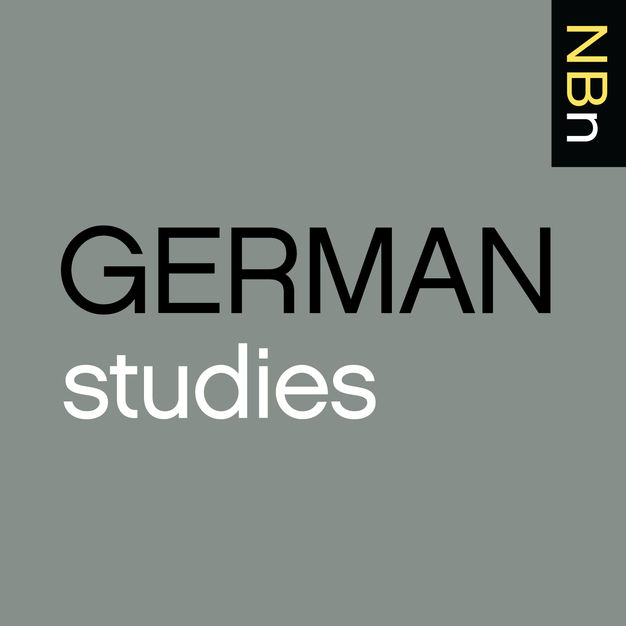
New Books in German Studies
Marshall Poe
Interviews with Scholars of Germany about their New Books
- 1 hour 38 minutesKarel Margry, "Nordhausen Concentration Camp" (After the Battle, 2024)
In the history of Nazi concentration camps, and particularly labor camps, there is probably no place that bears the same stigma of wretchedness as 'Dora-Mittelbau' at Nordhausen. Located in the Harz mountains in central Germany, next to a quarry tunnel system in the Kohnstein mountain, it served to house thousands of slave workers for an underground factory known as the Mittelwerk, which produced three of Germany's best-known secret weapons: the V1 flying bomb, the V2 rocket and jet engines for the Me 262 and Ar 234 fighters. With over 20 kilometers of underground galleries, it was the largest underground factory in the world. Many of the inmates died in indescribable misery, being forced to extend the tunnels with meager equipment and under ghastly conditions, sometimes not seeing daylight for weeks on end. Started in August 1943, 'Dora-Mittelbau' in due course became the centre of a whole complex of underground factories in the Nordhausen area, with several subsidiary camps being set up. In all, of some 60,000 prisoners sent there between 1943 and 1945, 20,000 were driven to extinction to implement Nazi Germany's secret weapons program, but they labored late and in vain, for the products they yielded had little impact on the war. The V1 and V2 are the only weapons which cost more lives in production than in deployment: far more people died producing them than were killed from their impact in London, Antwerp and elsewhere.
The history of Nordhausen, already gruesome in itself, ended in a crescendo of violence when, in the final weeks of the war, the surviving inmates were evacuated from the camps in 'death marches'. One group of over a thousand men then became victim of one of the most horrendous of all Nazi atrocities. On April 13, 1945, just outside the town of Gardelegen, their SS camp guards, helped by local troops and Hitlerjugend, locked the prisoners in a big barn and set fire to the inside, burning those inside, killing them with hand-grenades, and shooting anyone who tried to escape from the burning, smoke-filled building. A total of 1,016 men died as a result. When discovered by American troops two days later, Gardelegen quickly became known as the site of one most notorious war crimes committed by the Nazis.
In this book, Karel Margry recounts the history of Nordhausen concentration camp and of the Gardelegen massacre in full detail. Both stories are illustrated with unique Then and Now comparison photographs.
Learn more about your ad choices. Visit megaphone.fm/adchoices
Support our show by becoming a premium member! https://newbooksnetwork.supportingcast.fm/german-studies
31 January 2025, 9:00 am - 58 minutes 41 secondsElizabeth Campbell, "Museum Worthy: Nazi Art Plunder in Postwar Western Europe" (Oxford UP, 2024)
Art looting is commonly recognized as a central feature of Nazi expropriation, in both the Third Reich and occupied territories. After the war, the famed Monuments Men (and women) recovered several hundred thousand pieces from the Germans' makeshift repositories in churches, castles, and salt mines. Well publicized restitution cases, such as that of Gustav Klimt's luminous painting featured in the film Woman in Gold, illustrate the legacy of Nazi looting in the art world today. But what happened to looted art that was never returned to its rightful owners?
In France, Belgium, and the Netherlands, postwar governments appropriated the most coveted unclaimed works for display in museums, embassies, ministries, and other public buildings. Following cultural property norms of the time, the governments created custodianships over the unclaimed pieces, without using archives in their possession to carry out thorough provenance (ownership) research. This policy extended the dispossession of Jewish owners wrought by the Nazis and their collaborators well into the twenty-first century.
The custodianships included more than six hundred works in Belgium, five thousand works in the Netherlands, and some two thousand in France. They included paintings by traditional and modern masters, such as Rembrandt, Cranach, Rubens, Van der Weyden, Tiepolo, Picasso, and Matisse. This appropriation of plundered assets endured without controversy until the mid-1990s, when activists and journalists began challenging the governments' right to hold these items, ushering in a period of cultural property litigation that endures to this day. Including interviews that have never before been published, Museum Worthy: Nazi Art Plunder in Postwar Western Europe (Oxford University Press, 2024) by Dr. Elizabeth Campbell deftly examines the appropriation of Nazi art plunder by postwar governments and highlights the increasingly successful postwar art recovery and restitution process.
This interview was conducted by Dr. Miranda Melcher whose new book focuses on post-conflict military integration, understanding treaty negotiation and implementation in civil war contexts, with qualitative analysis of the Angolan and Mozambican civil wars.
Learn more about your ad choices. Visit megaphone.fm/adchoices
Support our show by becoming a premium member! https://newbooksnetwork.supportingcast.fm/german-studies
29 January 2025, 9:00 am - 1 hour 37 minutesEdward Westermann, "Hitler's Ostkrieg and the Indian Wars: Comparing Genocide and Conquest" (U Oklahoma Press, 2016)
As he prepared to wage his war of annihilation on the Eastern Front, Adolf Hitler repeatedly drew parallels between the Nazi quest for Lebensraum, or living space, in Eastern Europe and the United States's westward expansion under the banner of Manifest Destiny. The peoples of Eastern Europe were, he said, his "redskins," and for his colonial fantasy of a "German East" he claimed a historical precedent in the United States's displacement and killing of the native population. Edward B. Westermann examines the validity, and value, of this claim in Hitler's Ostkrieg and the Indian Wars: Comparing Genocide and Conquest (University of Oklahoma Press, 2016).
The book takes an empirical approach that highlights areas of similarity and continuity, but also explores key distinctions and differences between these two national projects. The westward march of American empire and the Nazi conquest of the East offer clear parallels, not least that both cases fused a sense of national purpose with racial stereotypes that aided in the exclusion, expropriation, and killing of peoples. Westermann evaluates the philosophies of Manifest Destiny and Lebensraum that justified both conquests, the national and administrative policies that framed Nazi and U.S. governmental involvement in these efforts, the military strategies that supported each nation's political goals, and the role of massacre and atrocity in both processes. Important differences emerge: a goal of annihilation versus one of assimilation and acculturation; a planned military campaign versus a confused strategy of pacification and punishment; large-scale atrocity as routine versus massacre as exception.
Comparative history at its best, Westermann's assessment of these two national projects provides crucial insights into not only their rhetoric and pronouncements but also the application of policy and ideology "on the ground." His sophisticated and nuanced revelations of the similarities and dissimilarities between these two cases will inform further study of genocide, as well as our understanding of the Nazi conquest of the East and the American conquest of the West.
Learn more about your ad choices. Visit megaphone.fm/adchoices
Support our show by becoming a premium member! https://newbooksnetwork.supportingcast.fm/german-studies
29 January 2025, 9:00 am - 1 hour 24 minutesBenjamin Carter Hett, "The Nazi Menace: Hitler, Churchill, Roosevelt, Stalin, and the Road to War" (Henry Holt, 2020)
Berlin, November 1937. Adolf Hitler meets with his military commanders to impress upon them the urgent necessity for a war of aggression in eastern Europe. Some generals are unnerved by the Führer’s grandiose plan, but these dissenters are silenced one by one, setting in motion events that will culminate in the most calamitous war in history.
Benjamin Carter Hett takes us behind the scenes in Berlin, London, Moscow, and Washington, revealing the unsettled politics within each country in the wake of the German dictator’s growing provocations. He reveals the fitful path by which anti-Nazi forces inside and outside Germany came to understand Hitler’s true menace to European civilization and learned to oppose him, painting a sweeping portrait of governments under siege, as larger-than-life figures struggled to turn events to their advantage.
As in The Death of Democracy, his acclaimed history of the fall of the Weimar Republic, Hett draws on original sources and newly released documents to show how these long-ago conflicts have unexpected resonances in our own time. To read The Nazi Menace: Hitler, Churchill, Roosevelt, Stalin, and the Road to War (Henry Holt, 2020) is to see past and present in a new and unnerving light.
Learn more about your ad choices. Visit megaphone.fm/adchoices
Support our show by becoming a premium member! https://newbooksnetwork.supportingcast.fm/german-studies
28 January 2025, 9:00 am - 1 hour 11 minutesPeter Harmsen, "Fury and Ice: Greenland, the United States and Germany in World War II" (Casemate, 2024)
Today I talked to Peter Harmsen about his book Fury and Ice: Greenland, the United States and Germany in World War II (Casemate, 2024).
The wartime interest in Greenland was a direct result of its vital strategic position--if you wanted to predict the weather in Europe, you had to have men in place on the vast, frozen island. The most celebrated example of Greenland's crucial contribution to Allied meteorological services is the correct weather forecast in June 1944 leading to the decision to launch the invasion of Normandy. In addition, both before and after D-Day a stream of weather reports from Greenland was essential for the Allied ability to carry out the bombing offensive against Germany.
The Germans were aware of the value of Greenland from a meteorological point of view, and they repeatedly attempted to establish semi-permanent weather stations along the sparsely populated east coast of the island. This resulted in an epic cat-and-mouse game, in which US Coast Guard personnel assisted by a celebrated sledge patrol manned by Scandinavian adventurers struggled to locate and eliminate German bases before they could make any difference. It's a story seldom told, but the fact remains that Greenland was the only part of the North American continent in which German troops maintained a presence throughout almost the entirety of the war.
At the same time, the US entry into the war triggered an enormous American effort to hastily establish the necessary infrastructure in the form of harbors and air bases that enabled Greenland to form a vital link in the effort to send men and supplies across the North Atlantic in the face of stern opposition from the German Navy. While Allied ships were passing through Greenland waters in massive numbers, planes were plying the so-called Snowball Route from Greenland over Iceland to the British Isles.
Learn more about your ad choices. Visit megaphone.fm/adchoices
Support our show by becoming a premium member! https://newbooksnetwork.supportingcast.fm/german-studies
27 January 2025, 9:00 am - 51 minutes 37 secondsVera Keller, "Curating the Enlightenment: Johann Daniel Major and the Experimental Century" (Cambridge UP, 2024)
How did the research universities of the Enlightenment come into being? And what debt do they owe to scholars of the previous era? Focusing on the career of German polymath Johann Daniel Major (1634–93), Curating the Enlightenment: Johann Daniel Major and the Experimental Century (Cambridge University Press, 2024) by Dr. Vera Keller uncovers how late seventeenth-century scholars crafted the research university as a haven for critical inquiry in defiance of political and economic pressures. Abandoning the surety of established intellectual practice, this 'experimental century' saw Major and his peers reshaping fragments of knowledge into new perspectives. Across new disciplines, from experimental philosophy to archaeology and museology, they reexamined what knowledge was, who it was for, and how it was to be stored, managed, accessed, judged, and transformed. Although later typecast as Baroque obstacles to be overcome by the Enlightenment, these academics arranged knowledge in dynamic infrastructures that encouraged its further advancement in later generations, including our own. This study examines these seventeenth-century practices as part of a continuous intellectual tradition and reconceptualizes our understanding of the Enlightenment.
This interview was conducted by Dr. Miranda Melcher whose new book focuses on post-conflict military integration, understanding treaty negotiation and implementation in civil war contexts, with qualitative analysis of the Angolan and Mozambican civil wars.
Learn more about your ad choices. Visit megaphone.fm/adchoices
Support our show by becoming a premium member! https://newbooksnetwork.supportingcast.fm/german-studies
27 January 2025, 9:00 am - 1 hour 8 minutesSusan C. I. Grunewald, "From Incarceration to Repatriation: German Prisoners of War in the Soviet Union" (Cornell UP, 2024)
With From Incarceration to Repatriation: German Prisoners of War in the Soviet Union (Cornell UP, 2024), Susan Grunewald significantly enhances understandings of the fate of Germans captured by the Soviet Union during World War II. Her archival research demonstrates that the Soviets saw the German prisoners of war as a source of labor at a time when the Soviet Union urgently needed to rebuild and lacked manpower after its enormous war losses. Numerous Soviet enterprises, operating under dozens of ministries, used POWs contracted out by prison camp officials. Grunewald argues that the mistreatment of German POWs and their high death rates were the consequence not of retribution but of negligence, lack of coordination, and severe shortages, especially during the famine that followed the war. Those too weak to work were often repatriated. POWs were also subjected to intense antifascist reeducation so that once home, they would help win support among Germans for the Soviet Union; many former prisoners filled leadership roles in East Germany after the establishment of two German states in 1949. The last POWs returned to Germany in early 1956.
Learn more about your ad choices. Visit megaphone.fm/adchoices
Support our show by becoming a premium member! https://newbooksnetwork.supportingcast.fm/german-studies
26 January 2025, 9:00 am - 55 minutes 42 secondsLeon Saltiel, "The Holocaust in Thessaloniki: Reactions to the Anti-Jewish Persecution, 1942–1943" (Routledge, 2020)
The Holocaust in Thessaloniki: Reactions to the Anti-Jewish Persecution, 1942-1943 (Routledge, 2021) narrates the last days of the once prominent Jewish community of Thessaloniki, the overwhelming majority of which was transported to the Nazi death camp of Auschwitz in 1943.
Focusing on the Holocaust of the Jews of Thessaloniki, this book maps the reactions of the authorities, the Church and the civil society as events unfolded. In so doing, it seeks to answer the questions, did the Christian society of their hometown stand up to their defense and did they try to undermine or object to the Nazi orders? Utilizing new sources and interpretation schemes, this book will be a great contribution to the local efforts underway, seeking to reconcile Thessaloniki with its Jewish past and honour the victims of the Holocaust.
The first study to examine why 95 percent of the Jews of Thessaloniki perished--one of the highest percentages in Europe--this book will appeal to students and scholars of the Holocaust, European History and Jewish Studies.
Learn more about your ad choices. Visit megaphone.fm/adchoices
Support our show by becoming a premium member! https://newbooksnetwork.supportingcast.fm/german-studies
26 January 2025, 9:00 am - 1 hour 10 minutesMichael Sonenscher, "After Kant: The Romans, the Germans, and the Moderns in the History of Political Thought" (Princeton UP, 2023)
In this wide-ranging work, Michael Sonenscher traces the origins of modern political thought and ideologies to a question, raised by Immanuel Kant, about what is involved in comparing individual human lives to the whole of human history. How can we compare them, or understand the results of the comparison? Kant’s question injected a new, future-oriented dimension into existing discussions of prevailing norms, challenging their orientation toward the past. This reversal made Kant’s question a bridge between three successive sets of arguments: between the supporters of the ancients and moderns, the classics and romantics, and the Romans and the Germans. Sonenscher argues that the genealogy of modern political ideologies—from liberalism to nationalism to communism—can be connected to the resulting discussions of time, history, and values, mainly in France but also in Germany, Switzerland, and Britain, in the period straddling the French and Industrial revolutions.
What is the genuinely human content of human history? Everything begins somewhere—democracy with the Greeks, or the idea of a res publica with the Romans—but these local arrangements have become vectors of values that are, apparently, universal. The intellectual upheaval that Sonenscher describes involved a struggle to close the gap, highlighted by Kant, between individual lives and human history. After Kant is an examination of that struggle’s enduring impact on the history and the historiography of political thought.
Michael Sonenscher is a fellow of King’s College at the University of Cambridge. His many books include Before the Deluge (Princeton), Sans-Culottes (Princeton), and Jean-Jacques Rousseau.
Morteza Hajizadeh is a Ph.D. graduate in English from the University of Auckland in New Zealand. His research interests are Cultural Studies; Critical Theory; Environmental History; Medieval (Intellectual) History; Gothic Studies; 18th and 19th Century British Literature. YouTube channel. Twitter.
Learn more about your ad choices. Visit megaphone.fm/adchoices
Support our show by becoming a premium member! https://newbooksnetwork.supportingcast.fm/german-studies
26 January 2025, 9:00 am - 1 hour 10 minutesRichard Bourke, "Hegel’s World Revolutions" (Princeton UP, 2023)
G.W.F. Hegel was widely seen as the greatest philosopher of his age. Ever since, his work has shaped debates about issues as varied as religion, aesthetics and metaphysics. His most lasting contribution was his vision of history and politics. In Hegel’s World Revolutions (Princeton UP, 2023), Richard Bourke returns to Hegel’s original arguments, clarifying their true import and illuminating their relevance to contemporary society. Bourke shows that central to Hegel’s thought was his anatomy of the modern world. On the one hand he claimed that modernity was a deliverance from subjection, but on the other he saw it as having unleashed the spirit of critical reflection. Bourke explores this predicament in terms of a series of world revolutions that Hegel believed had ushered in the rise of civil society and the emergence of the constitutional state.
Bourke interprets Hegel’s thought, with particular reference to his philosophy of history, placing it in the context of his own time. He then recounts the reception of Hegel’s political ideas, largely over the course of the twentieth century. Countering the postwar revolt against Hegel, Bourke argues that his disparagement by major philosophers has impoverished our approach to history and politics alike. Challenging the condescension of leading thinkers—from Heidegger and Popper to Lévi-Strauss and Foucault—the book revises prevailing views of the relationship between historical ideas and present circumstances
Richard Bourke is professor of the history of political thought and a fellow of King’s College at the University of Cambridge. He is the author of a number of books, including Empire and Revolution: The Political Life of Edmund Burke (Princeton).
Morteza Hajizadeh is a Ph.D. graduate in English from the University of Auckland in New Zealand. His research interests are Cultural Studies; Critical Theory; Environmental History; Medieval (Intellectual) History; Gothic Studies; 18th and 19th Century British Literature. YouTube channel. Twitter.
Learn more about your ad choices. Visit megaphone.fm/adchoices
Support our show by becoming a premium member! https://newbooksnetwork.supportingcast.fm/german-studies
25 January 2025, 9:00 am - 1 hour 53 secondsTerrence C. Petty, "Nazis at the Watercooler: War Criminals in Postwar German Government Agencies" (U Nebraska Press, 2023)
After World War II, when a new German democracy was born in the western region of the vanquished Third Reich, tens of thousands of civil servants were hired to work for newly formed government agencies to get the new republic quickly on its feet. But there was an enormous flaw in the plan: no serious vetting system was put in place to keep war criminals out of government positions.
As discussed in Nazis at the Watercooler: War Criminals in Postwar German Government Agencies (University of Nebraska Press, 2024) by Terrence Petty, ex-Nazis—people who had been involved in mass murder, drafting antisemitic laws, and the persecution of Hitler’s opponents, as well as other depravities—resumed their careers without consequence in the newly created Federal Republic of Germany. Former Nazis who had established an early foothold in postwar government agencies helped each other get government work by writing letters of recommendation called Persilscheine. These “Persil Certificates,” named after a popular detergent, made an ex-Nazi’s recorded past just as clean as fresh laundry, and a whole generation of German government officials with Nazi pasts was never brought to account.
Ex-Nazis were given preference for government jobs even over victims of Nazi policies and anti-Hitler resisters. They swapped Nazi uniforms for suits, Hitler salutes for handshakes. And with help from the highest levels of West German government and even the CIA, they swept their crimes under the carpet and resurrected their careers. Nazis at the Watercooler illuminates the network of ex–Third Reich loyalists and the U.S. government’s complicity that enabled this mass impunity.
This interview was conducted by Dr. Miranda Melcher whose new book focuses on post-conflict military integration, understanding treaty negotiation and implementation in civil war contexts, with qualitative analysis of the Angolan and Mozambican civil wars.
Learn more about your ad choices. Visit megaphone.fm/adchoices
Support our show by becoming a premium member! https://newbooksnetwork.supportingcast.fm/german-studies
24 January 2025, 9:00 am - More Episodes? Get the App
Your feedback is valuable to us. Should you encounter any bugs, glitches, lack of functionality or other problems, please email us on [email protected] or join Moon.FM Telegram Group where you can talk directly to the dev team who are happy to answer any queries.
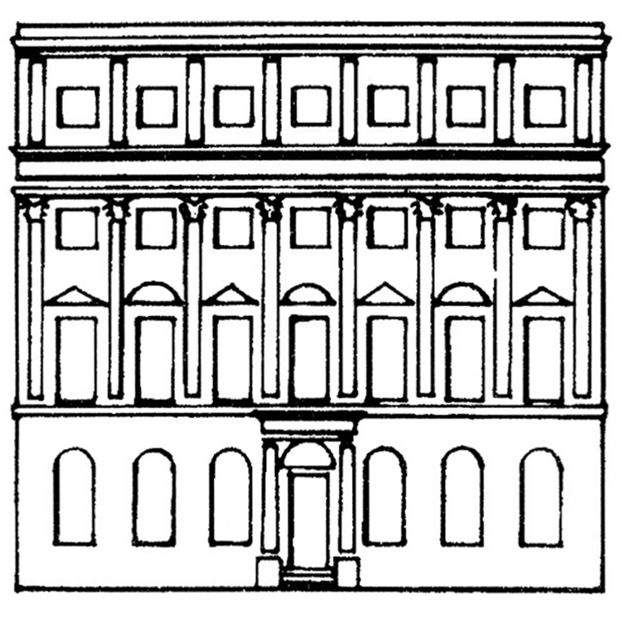 German Historical Institute London Podcast
German Historical Institute London Podcast
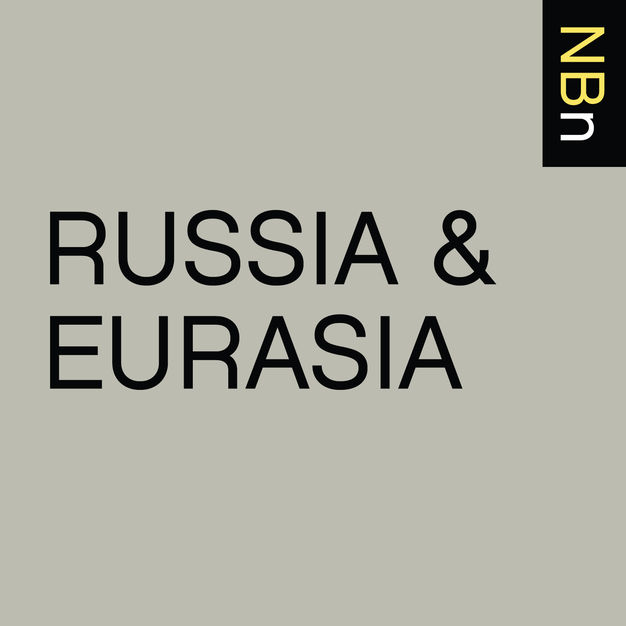 New Books in Russian and Eurasian Studies
New Books in Russian and Eurasian Studies
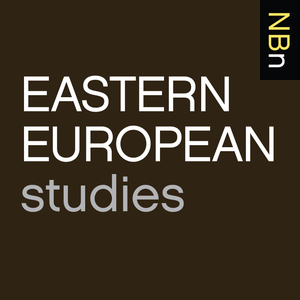 New Books in Eastern European Studies
New Books in Eastern European Studies
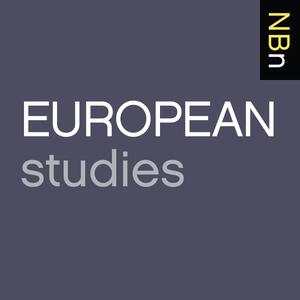 New Books in European Studies
New Books in European Studies
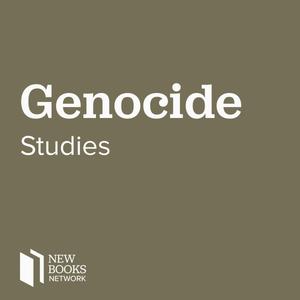 New Books in Genocide Studies
New Books in Genocide Studies
 New Books in French Studies
New Books in French Studies